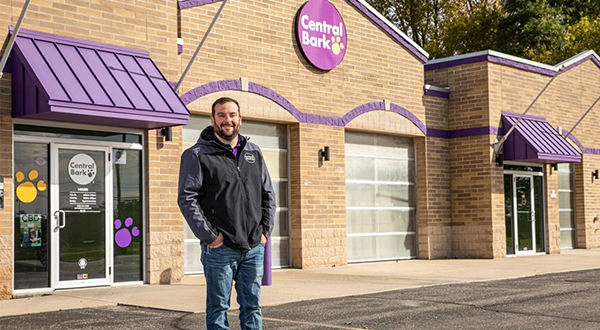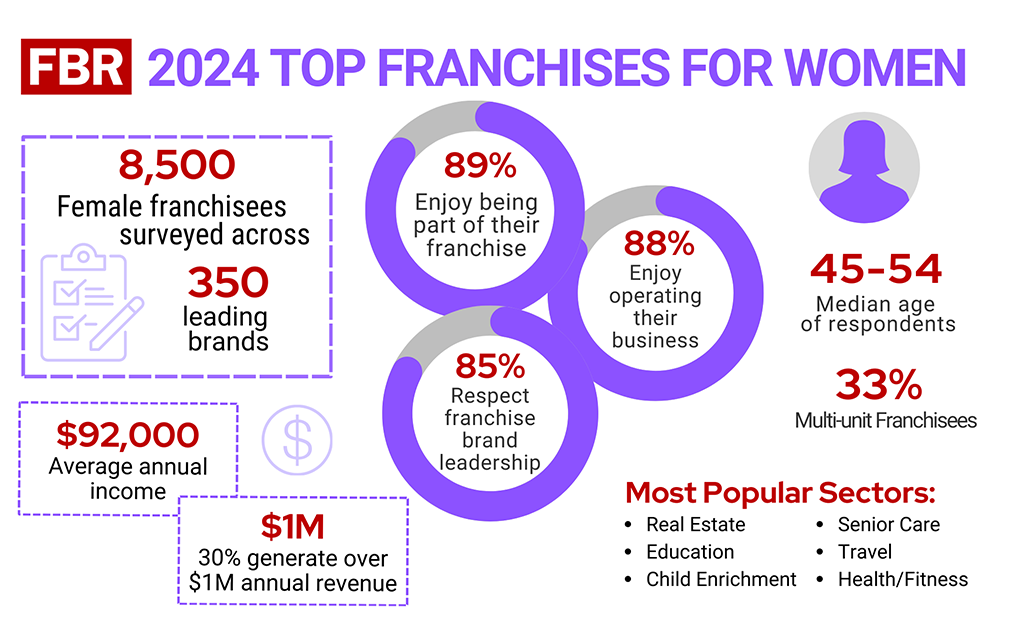
A strong economy, favorable corporate tax breaks, and consumer confidence all contributed to positive franchise growth over the past several years. While investing during a franchise-friendly economy may be appealing, investors must consider several factors before they leap. While franchises have plenty to offer over startups—brand recognition, loyal customer bases, marketing support, and proven processes—they do come with their own set of risks. It’s also important to note that franchises also perform well during recessions.
“Franchising has historically done well under most economic conditions,” said Eric Stites, CEO of Franchise Business Review. “During boom periods, the fear of missing out on a great opportunity fuels strong franchise growth. On the other hand, during a downturn, the fear of job loss and financial security drives many people to take control of their futures by investing in a franchise business.
If you are looking to invest in a franchise, it’s important to understand the big picture to avoid potential investment pitfalls, regardless of the economic forecast.
How is a Franchise Different Than a Startup?

There is an obvious appeal to starting a business by investing in a franchise. While getting a start-up off the ground often involves many unknowns, a franchise comes with a successful model and brand recognition right from the start.
A franchise is a business you invest in, hoping to make a good return on your money by offering a product or service your market wants. Although you may own the rights to your own franchise, you will still have a set of rules to follow. Here are some key points to help you better understand how franchising works:
- A franchise is a type of business operated by an individual(s) known as a franchisee using the trademark, branding, and business model of a franchisor.
- In this business model, there is a legal and commercial relationship between the owner of the company (the franchisor) and the individual (the franchisee). In other words, the franchisee is licensed to use the franchisor’s trade name and operating systems.
- In exchange for the rights to use the franchisor’s business model—to sell the product or service and be provided with training, support, and operational instructions—the franchisee pays a franchise fee (known as a royalty) to the franchisor. The franchisee must also sign a contract (franchise agreement) agreeing to operate under the terms specified in the contract.
- A franchise essentially acts as an individual branch of the franchise company, as outlined in the franchise agreement you sign when you purchase the business.
- The franchise agreement defines how you can run your business, market it to customers, and what types of funding resources you can tap to develop it. (This is different than a Franchise Disclosure Document.)
- While you can “skip the startup phase,” there’s no question that running a franchise is hard work. And, you will still have to front startup costs, abide by your contract, and follow laws related to safety and personnel issues, for example.
Is Owning a Franchise a Good Idea?
For some, owning a franchise offers a great way to break into small business ownership. After all, you might already know your territory and your customer base well. Franchises come with plenty of perks: the ability to work for yourself, tried-and-true business models to follow, and guidance from experts who’ve run the business before you.
But it’s not all glory—franchisees should expect to work long hours, wait patiently for several months or sometimes years before they realize a profit, and adhere to specific business requirements set by the home office. Whether or not owning a franchise is a good idea depends on how well you know yourself, how much financial risk you are willing to take, and how dedicated you are to making your business successful.
Should You Buy a Franchise or Start a Business from Scratch?

Before you decide on any franchise, you must determine if franchise ownership is right for you. Here are some questions to ask:
- Do you enjoy following systems laid out by others, or do you prefer to pave your own way?
- Will your spouse or life partner support your decision to invest your time and money into a franchise?
- Are you ready to take on the role of franchise owner, including all the business and personnel tasks that fall under that title?
- Are you passionate about the industry that you plan to work in?
Do you understand the full financial and legal obligations you’ll take on as a franchisee? Enthusiastic investors should also consider their financial obligations both in the near- and long-term. Some things to ask:
- How much will my initial investment set me back? (This upfront cost includes everything from the franchise fee to the development fees, costs for computer systems, and the like). Some initial investments are a few thousand dollars, while others add up to millions.
- What types of royalty payments will you be responsible for, and how often will you be expected to pay them? (Some franchises ask that royalties be paid weekly from gross or net income.)
- Can you obtain financing from your franchisor, local bank, or another type of loan? Are you willing to invest your personal or retirement savings to get your business up and running?
What is the Best Franchise to Buy?

Buying a franchise requires shopping around for the best fit, based on several factors.
- Do you want to hire many employees to help manage the workload, or do you prefer a smaller franchise that allows you to work from home or on the road?
- Are you passionate about providing customers with products or services?
- Is there a specific franchise industry or brand that interests you?
- Will you need a franchise that offers financing options or location assistance?
Once you’ve decided that you might want to pursue franchising, it’s important to research to find the company that best matches your interests, budget, and business expertise. Looking for Ideas? Check out these franchise lists:
Next, you should look at what other franchisees say about their experiences. Franchise Business Review surveys thousands of franchisees regularly to create lists that give potential buyers a transparent view of franchisee satisfaction. Finally, once you’ve narrowed down the field, you should compare brands and directly ask both franchisors and franchisees questions that can give you a better idea of what owning a business will be like.
Here are a few questions you might consider asking.
10 Questions to Ask the Franchise Brand Before You Buy
- What characteristics make your top-performing franchisees successful, and what is it specifically about my background that you think makes me a good fit for your system?
- Even in the best business partnerships, disagreements and conflicts happen. If I am a franchisee and I have a problem, what processes do you have in place to come to a fair solution that works for both of us?
- What trends in this industry could negatively impact the business over the next decade, and what are you doing strategically to overcome these challenges?
- What areas of support will you provide, and how much support will be offered?
- How long have you been franchising?
- How many franchise owners have failed? Why did they fail?
- What has your past business growth looked like, and what are your long-term plans for future growth?
- Can you sell the business? Are there any restrictions regarding doing so?
- Is there a set territory? How do you prevent franchisees from cannibalizing business from each other?
- How long does it take to be up and running once the agreement is signed?
7 Questions to Ask Franchisees Before You Buy
- Did the opening of your business go according to plan?
- How effective and useful was your initial training, and is it ongoing training?
- How much support does the franchisor give you on a day-to-day basis?
- What was your first-year gross revenue? What is it now? When did you make a profit?
- Are turnover and profitability aligned with what the franchisor told you they would be?
- How helpful are the other franchisees?
- What do you wish you had known going into business that you did not? Is there anything you would have done differently?
Asking both franchisors and franchisees questions about profitability, growth, and culture will help you compare brands and uncover any advantages one investment might have over another.
Is Buying a Franchise Profitable? How Much Money Can You Make Owning a Franchise?

Not all franchises are created equal when it comes to profitability. While it’s important to enjoy the brand, the people you work with, and the products and services you provide customers, you must ensure your new venture will ultimately make money.
A statistic to be aware of is the 80/20 rule, which says the top 20% of all franchisees are high performers. For example, FBR research shows that 37% of food franchise owners earn less than $50,000 annually, and just 16% – the “top performers” – earn more than $200,000 annually. The average annual income reported by all food and beverage operators that we surveyed is $120,000 for businesses open at least two years.
As a business owner, you should also remember that your take-home income will ultimately come from your business’s net profit or “bottom line.” While the gross sales/gross revenue of any business (commonly referred to as “top line revenue”) may seem impressive, it is critical to understand the profit margin of the business, the percentage of money left over after all business expenses are paid, Eric Stites, CEO of Franchise Business Review told CNBC.
There are some ways to determine whether a franchise will be profitable, much of which you can extrapolate from a Franchise Disclosure Document. These include:
- Number of units—Listed in Item 20 of the FDD, you can determine growth by the number of new locations opened and closed each year. You can also see how many units were opened abroad, how many were transferred, and how many are company-owned.
- Average sales per unit—Most companies list the financial performance of a set of franchisees in Item 19 of the FDD. However, Item 19 is optional and not required by law, so you may encounter FDDs that don’t feature detailed financial performance representations.
- New franchisee success rates—In Item 20, you can also see how many units have failed, closed, or transferred in the past three years.
- Other industry resources—Franchise reviews can show how well franchisees rate profitability in relation to training, support, and overall satisfaction.
- Conversations with franchisees – What franchisees tell you in your conversations with them can be invaluable.
Keep these tips in mind when researching franchise opportunities for profitability:
- Talk with as many franchisees as possible and confirm that your business projections and income expectations are realistic.
- Understand that most business owners can’t take any money out of the business for the first few years during the startup phase, and it may take you even longer to start paying yourself a salary from your new business.
- Plan accordingly and try to have alternative sources of income (i.e., a spouse’s salary) to rely on while your new business gets off the ground.
Ready to Take the Next Steps?

Once you choose your ideal franchise, you will need to take a series of steps before you are ready to own and operate your business.
- First, you’ll likely be asked to formally apply for a franchise, which serves as a screening document for serious investors. Be prepared to furnish financial information, including your personal assets and liabilities. You will also need to disclose information about your educational and professional background and choose one or more franchise locations.
- Before you sign on the dotted line, you’ll likely be required to attend a meeting at your franchisor’s home office, often known as a franchise discovery day. During this meeting, you’ll meet the executive team, check out the corporate facilities, and get answers to all your questions. You’ll also get a better feel for the company’s culture and personality before you commit to signing a franchise agreement.
- The franchise agreement makes your investment legal and binding. It gives you the legal right to operate a franchise under the home office’s requirements. The franchise agreement outlines the following:
- Grants – states that the franchisor is giving the franchisee a restricted, non-transferable, and non-exclusive license to use the logos, trademarks, and system of operation for a given time period
- Opening date and territory boundaries
- Fees and purchases – including the initial fee, franchise fees, royalty fees, and other additional costs that may need to be made by the franchisee before opening and during operation
- Term and renewal provisions
- Sourcing of materials and building design
- Operations, training, and support
- Proprietary marks and intellectual property
- Transferability of interests
- Compliance with laws
It’s important to note that while some franchise agreements are negotiable—many are not. You should seek legal advice before making one of the most important decisions of your life.
The largest barrier to opening a franchise is capital. After you sign your franchise agreement, you’ll need to quickly assess whether you have enough money to support your new investment, including the franchise fee due immediately after signing the agreement.
When figuring out how much money you will need to launch your new business, you can find fees and startup costs estimates in Items 5 – 7 of the FDD. This will also provide you with average monthly sales and year-over-year revenue growth. Remember that you’ll need enough funds to cover construction and development costs, long-term leases, equipment, and any signage or systems you need to run your franchise.
Funding sources could include:
- SBA loans
- Low-doc SBA loans
- Rollovers for Business Startups
- Portfolios loans
- Unsecured loans
When Buying a Franchise, Shop Wisely
Investors shopping around for the right franchise have thousands of choices. However, not all franchises are smart investments. That’s why it’s important to research opportunities, assess your own interests, and compare the franchises you are interested in. To help prospective buyers like you find the best opportunities each year, Franchise Business Review surveys thousands of franchisees across hundreds of brands to give you a comprehensive look at the top franchise opportunities on the market today.



